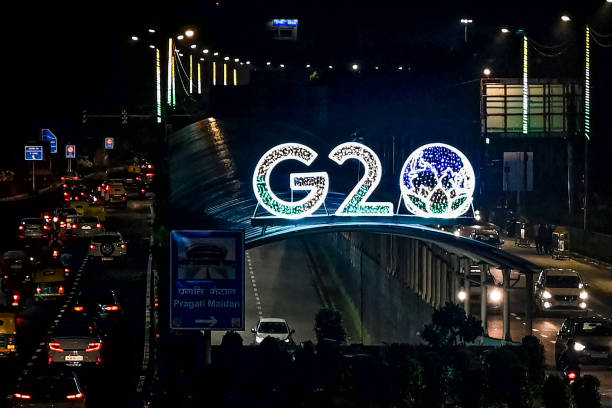India’s capital to be brought to standstill for three-day G20 summit
Staggering 10,000 police personnel to be deployed for smooth traffic movement as public access to some areas to be restricted

Your support helps us to tell the story
From reproductive rights to climate change to Big Tech, The Independent is on the ground when the story is developing. Whether it's investigating the financials of Elon Musk's pro-Trump PAC or producing our latest documentary, 'The A Word', which shines a light on the American women fighting for reproductive rights, we know how important it is to parse out the facts from the messaging.
At such a critical moment in US history, we need reporters on the ground. Your donation allows us to keep sending journalists to speak to both sides of the story.
The Independent is trusted by Americans across the entire political spectrum. And unlike many other quality news outlets, we choose not to lock Americans out of our reporting and analysis with paywalls. We believe quality journalism should be available to everyone, paid for by those who can afford it.
Your support makes all the difference.India’s national capital New Delhi will come to a standstill for three days in September as it will play host to several world leaders for the G20 summit.
Travel and access to Delhi, known for having a high population density, is expected to be severely restricted ahead of the event as world leaders like Joe Biden, Xi Jinping, Emmanuel Macron and Justin Trudeau will reach the city to attend the multilateral event.
Delhi’s chief minister Arvind Kejriwal has already announced a public holiday from 8-10 September, directing all government, municipal corporation, private offices and schools to remain shut.
Further traffic restrictions will be introduced in the New Delhi district, also known as the Lutyen’s Zone, where the functionaries are expected to reside. Only residents and those in essential service jobs will be allowed to enter the area, according to a traffic plan introduced by the state police, stonewalling access to the area for about 30 million city residents.
“There will be no impact of these restrictions on ambulance movement or essential services,” Surendrer Singh Yadav, special commissioner of police, was quoted as saying by the Hindustan Times. This would include daily-use commodities such as milk, fruits, vegetables and medical equipment.
“Since no buses will be allowed to move on the city roads between the midnights of September 7 and September 10, people are advised to use the Metro for commuting to their destination,” he said.
According to the outlet, police officials have also directed the Delhi Metro to shut services at some stations.
In the run up to the event, prime minister Narendra Modi issued a statement saying people may “face inconvenience” due to the restrictions, “but we have to ensure its success”.
Over 10,000 police personnel will be on the ground to ensure smooth and safe traffic movement in the national capital.
The scale of the massive restrictions has drawn criticism as the ability of the capital’s administrative machinery to hold such a high-profile event without disrupting the lives of ordinary citizens has come under focus.
“Have a small and innocent query, whether such ‘closures’ happen in all the countries where G20 is hosted or it is our very own ‘trademark’!!!” questioned lawmaker Manoj Kumar Jha.



Join our commenting forum
Join thought-provoking conversations, follow other Independent readers and see their replies
Comments